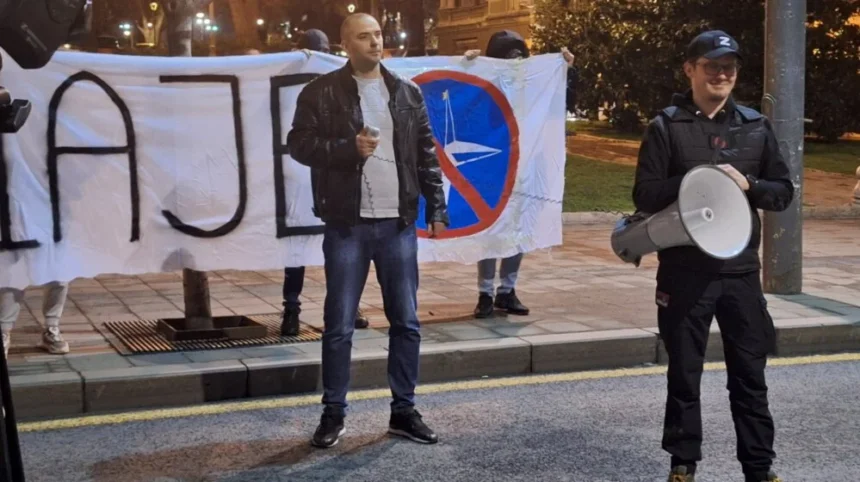A gathering of neo-Nazi and neo-fascist parties and movements from around the world took place in St. Petersburg, Russia, with participation from far-right Serbian organizations.
The summit was organized by the so-called International Suvereigntists League (ISL Paladins) and hosted by the Russian Brotherhood of Academics, alongside local Russian nationalist movements. The event’s motto was: “We do not succumb to Russophobia.”
Among the speakers was Damnjan Knežević, leader of Serbia’s Narodne Patrole, a group known for its extreme-right activism. Other Serbian participants included Srbska Akcija. The summit also hosted far-right and neo-fascist parties from Russia, Greece, Spain, France, Italy, South Africa, Argentina, Mexico, Brazil, Hungary, and the UK, many of which promote ultra-nationalist and openly fascist ideologies.
The congress featured ideological guidance from Aleksandr Dugin, a prominent Russian philosopher and political theorist with longstanding influence on President Vladimir Putin, often referred to as “Putin’s brain”.
According to organizers, the summit aimed to strengthen a common international front to defend what they term “Christian values” and national identities against globalist influences. The event concluded with a joint declaration and the formal establishment of the International Suvereigntists League (ISL) to coordinate future collaboration.
Serbian Far-Right Groups and Controversy
Both Srbska Akcija and Narodne Patrole are known for spreading hate against Roma, migrants, LGBTQ+ communities, and NGOs defending minority and human rights. They promote the idea of an ethnically and racially “pure” state under the guise of defending “traditional values” and have previously clashed with civil society activists and protesters.
Damnjan Knežević has faced legal actions in Serbia, including detention for allegedly attempting to overthrow the constitutional order, though he was released without charges. Despite their extreme activities, these groups have often enjoyed leniency from authorities, especially when targeting political opponents of the current regime.
The summit in St. Petersburg demonstrates the global networking of far-right movements, facilitated with support from Russian entities, highlighting ongoing concerns about the international spread of extremist ideologies.







